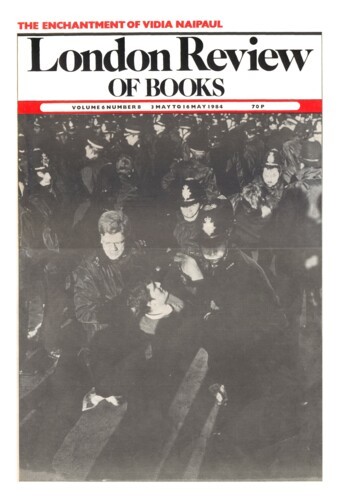paces alone in her garden.
An aging favourite, she knows the ritual
of cleaning-time, the kiss of key in gate
and cub led off, moon-eyed, to the far compound.
By the pool, the patch of mud that never dries,
she puts on speed. July-dark trees close
round keepers walking in formation.
It’s airless. The sun’s swaddled in white,
as if a snow-god, the God who made Siberia,
found on abandoning the crude paintbox of the taiga
for the south’s half-tones, that he was bored here too
and pegged out his blanket to sleep
on the hills of Kent, garden of England. Only Zea
reminds of that first throw of energy. Coat
a furnace, melting bars that spin out in her walk:
on polar nights, an orange anvil shooting sparks
into the iron of her four-gated body. She can remember
pines, the long leap in snow, reeds in frozen water.
Now, restricted to a sunken stage, she bows
to an applause of overgrown hydrangeas.
Zea’s owner passes, smiling. He’s proud of her,
this ‘fine cat’, even if she is ‘indifferent to her cub’,
for all the world to see. Hasn’t he held this beast,
descendant of the tiger-kings of Kolyma,
hunters as sudden in their drop as meteorites,
killers more certain of an escaped man
than shooting guards, in the icy archipelago?
This is a free country. They have been photographed together,
Zea spilling on his knees like a millionaire’s rug.
The pool. Zea in ripples of yellow and black
like a wheel, pointlessly turning. Now she stops, and goes to low shrubs.
(No one’s noticed lately that Zea has outpaced her cage:
she’s been surly, but the cub accounts for that);
no one saw, as she did, the lawns spin one heavy afternoon,
her own stripes close in to suffocation-point,
her nervous edging from a set of fingers
that play her pelt like a croupier raking chips.
Two keepers at the gate. Feeding-time. In this light
a carcass plays the part of Mid-Day Sun,
a red stop in the page of Zea’s endless days.
One man goes off, to find the cub. The other
heaves the bleeding ribcage to the hatch. He enters
the enclosure (a routine check) – no sign of Zea –
In the hatch, the meat slumps forward.
The sun falls. Seasons rush past. In her chrysanthemum eyes
He sees himself for the last time alive:
long feet, and a fairground mirror head.
In the compound, the cub dream-walks in a light rain.
Not knowing the meaning of indifference,
or why the keeper ran so fast, it waits to return to its mother.
But Zea is playing. The man’s head is in the mud.
His neck is broken; yet, before he died,
when he saw himself reflected in her gaze
a figure of fun, a homunculus, he wept,
and Zea comes to him three times to lick the salt tears from his eyes.
Send Letters To:
The Editor
London Review of Books,
28 Little Russell Street
London, WC1A 2HN
letters@lrb.co.uk
Please include name, address, and a telephone number.

